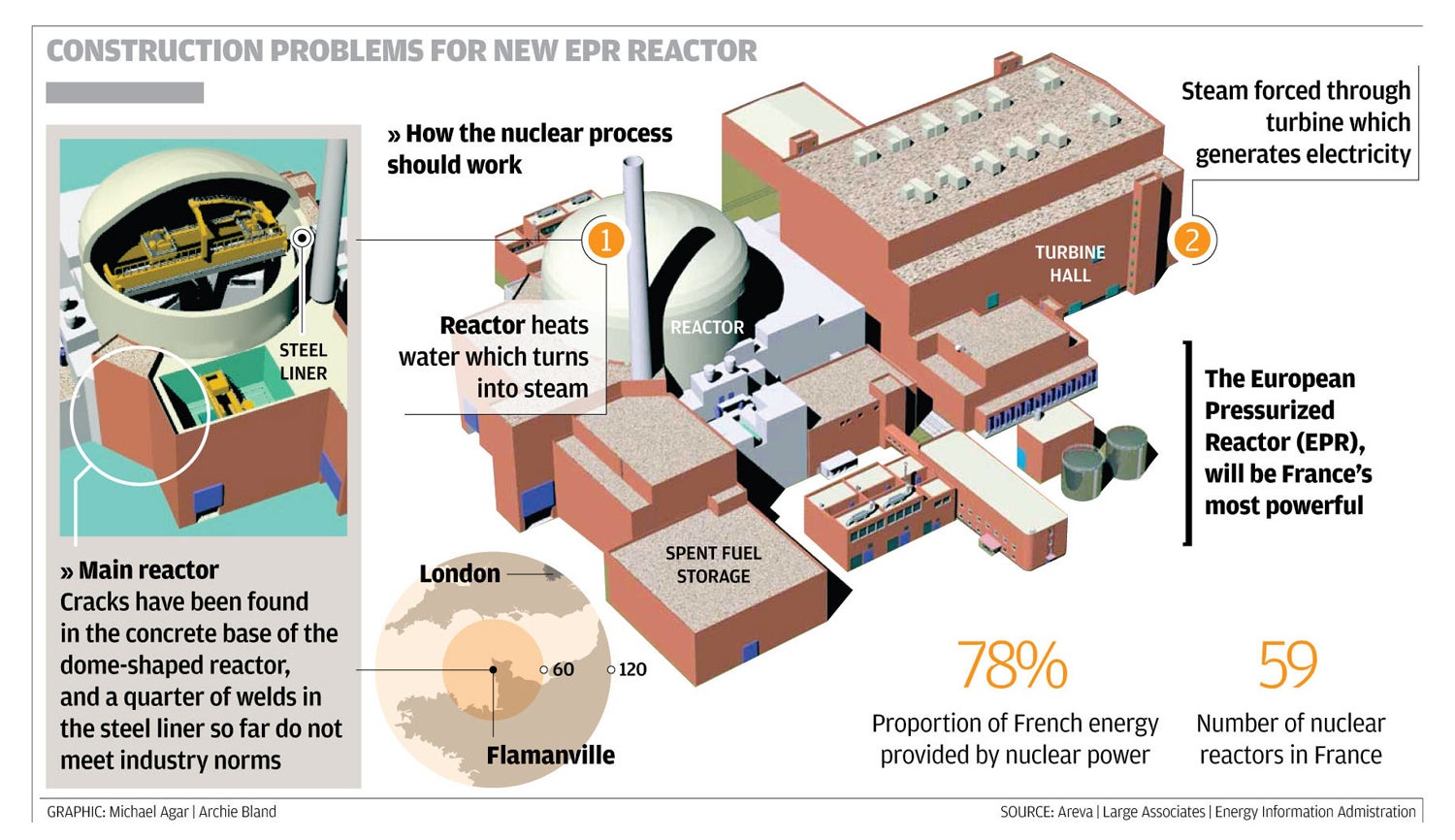Defects found in nuclear reactor the French want to build in Britain
Safety investigators uncover cracks in the concrete base and substandard welds. Lack of recent experience in building nuclear plants said to have caused problem

The French nuclear safety agency has uncovered a series of defects in the construction of a reactor in Normandy considered to be the template for the next generation of stations due to be built in Britain.
The agency, ASN, says that a quarter of the welds seen in its steel liner – a crucial line of defence if there were to be an accident – are not in accordance with welding norms, and that cracks have been found it its concrete base, also essential for containing radioactivity.
The reports – in a series of letters covering inspections made between December and last month – will cause particular concern because similar defects have been listed in a previous report by the Finnish safety authority into the only other reactor of its type being built anywhere in the world.
The earlier report helped put the Finnish reactor, on the island of Olkiluoto in the Gulf of Bothnia, two years behind schedule, three years after construction began. It is also believed to have helped increase its cost by more than 50 per cent. Similar delays and cost overruns here would play havoc with the Government's nuclear programme, and could even lead to it being abandoned.
However, the design, known as the European Pressurised Reactor, remains the most likely to be built in Britain.
Electricité de France (EDF) – which is constructing the French reactor at Flamanville near the tip of the Normandy peninsula – has said that it wants to build four of them in Britain at a cost of £10bn.
Gordon Brown and Nicolas Sarkozy agreed to co-operate closely on nuclear power during the French President's visit to London last month, raising visions of the two countries selling reactors worldwide. The French safety reports therefore come like unwelcome bucketfuls of cold water amid this growing nuclear love affair.
Although the ASN reports are identifying flaws very early in construction, the Finnish report – by the country's Radiation and Nuclear Safety Authority – makes clear that everything should be right from the start: "The technical and organisational preconditions for the safe operation of a nuclear power plant are created during the construction phase of the project."
The ASN report says that investigators have identified faults in the pouring of the concrete and in its formulation. There appears to be an "insufficient" course of action in preparing for concreting and "insufficiency of technical control".
EDF points to reports in technical journals saying that the French nuclear authorities believe that the construction of the reactor is satisfactory and that progress is being made on the issues raised.
The company says that "quality and safety" are its "absolute priority" and that "none of the points made by ASN has direct implications on the delivery of the project or on the safety of the future reactor".
However, the independent nuclear expert John Large says that the faults found on both the French and Finnish sites reflect a lack of recent experience in building nuclear reactors and that similar problems could arise when construction of a new generation begins in Britain.
The Royal Society of Chemistry confirms that a shortage of skills in nuclear construction "will put Britain's nuclear plans in jeopardy".
Join our commenting forum
Join thought-provoking conversations, follow other Independent readers and see their replies
Comments